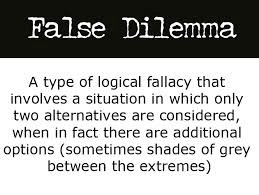OrdinaryTimes 1.33-Problemish

Whatever the real question turns out to be, either/or never qualifies as the real question. Either/or almost always proves to be the source of even more difficulty than a frame for a satisfying resolution. E/O offers too few choices to support satisfaction. What to do? When offered the choice of
either or or, choose neither. I understand that nobody’s offered that third choice, that the unspoken social convention insists that you shouldn’t reject the offered alternatives. Someone might be offended if you refuse to choose from the proffered platter. Do it anyway.Proliferate choices instead. Rather than arguing the relative goodness of either bad choice, ask what might characterize a delightful resolution. Enlarge the shadow of the future rather than blink in the blinding light of present perspective. Sit with the obvious mess long enough to understand its nature, let the difficulty inform you about its deeper nature. This effort isn’t procrastination but the very soul of resolution.
Problem solving should probably be reserved for problems. Either/or difficulties might feel problematic, but they fail to satisfy the definition of a problem. They are only very rarely resolved by proposing
the right answer or the best alternative because their frame excludes the possibility for right or best, subtly insisting upon compromise instead. Would you rather be right or, as The Muse asks, left? Would good enough satisfy or must you insist upon best?The Gordian Knot in the Middle East was created through iterated problem solving. Each compromise, each right answer, each best alternative providing no more than another tangle in an already hopelessly tangled legacy. How will adding another compromise, another right answer, another best alternative help? I don’t know either.
In Old Testament days, kings seemed to sometimes carry sufficient wisdom to rule in the Middle East. Challenged to decide which family should claim a baby, King Solomon suggested chopping the baby in half. This encouraged the battling claimants to choose for themselves rather than acquiesce to the presumed superior wisdom of their king.
We seem light on Solomons these days and heavy on problem solvers. The best and the brightest seem out of their league and the rest of us already know better than to rely upon some policy wonk to decide whether either is superior to or. We already know neither could be superior without splitting some baby down the middle.
©2013 by David A. Schmaltz - all rights reserved


